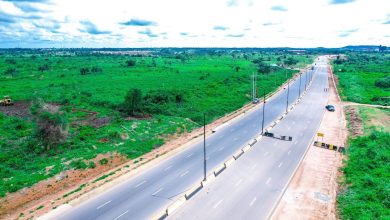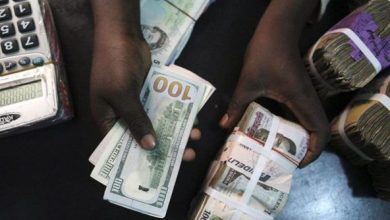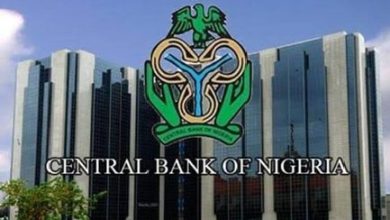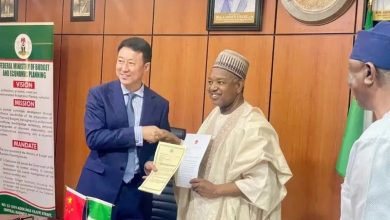Naira Strengthens to ₦1,550/$ on Parallel Market Amid Dollar Supply Surge, Lower Demand
The naira gained on the black market but dipped slightly at the official exchange window.
Analysts credit improved dollar supply, reduced demand, and forex reforms for the parallel market surge.
The naira posted mixed results across Nigeria’s foreign exchange markets this week, appreciating on the parallel market while experiencing marginal depreciation in the official market.
At the close of trading on Friday, July 11, the naira strengthened to ₦1,550/$ on the black market, up from ₦1,555/$ the previous day and a significant gain from last week’s close of ₦1,580/$, according to Nairametrics’ market surveillance. This marks one of the currency’s strongest weekly performances in the informal market so far this year.
Conversely, the official exchange rate, as published on the Central Bank of Nigeria (CBN) website, ended the week slightly weaker at ₦1,532/$, compared to ₦1,528.5/$ last week. The official rate fluctuated during the week, opening at ₦1,529.5/$ on Monday, dipping to ₦1,520/$ on Wednesday, and closing slightly lower at ₦1,532/$ on Friday.
Despite this mild depreciation in the official window, the parallel market’s rally has been welcomed by market watchers and currency users. Several factors are being credited for the naira’s strong showing in the street market.
Analysts attribute the naira’s recent appreciation largely to improved dollar liquidity across commercial banks and Bureau De Change (BDC) operators, coupled with a notable drop in demand for foreign currency.
“There is hardly any bank branch that you go to that you will not see dollars to collect if you wanted to buy,” a source at a central Nigerian bank told Nairametrics, suggesting that dollar availability has eased pressure on the naira.
In addition, many Nigerian businesses are reportedly reducing their reliance on imports and turning to locally sourced inputs, effectively lowering the demand for forex.
Dr Nasir Aminu, an economics lecturer and Senior Fellow at Cardiff Metropolitan University, noted another macroeconomic factor contributing to the naira’s resilience. “The naira hasn’t been volatile in the last few months. That’s partly because America’s dollar has been shrinking,” he said. According to him, the US dollar has depreciated by about 15% in recent months, which indirectly supports currencies like the naira.
The CBN also reported a steady increase in Nigeria’s foreign reserves, which rose to $37.3 billion by Wednesday, July 9, up from $37.127 billion on Monday. Analysts view this as a sign of greater macroeconomic stability and growing confidence in the financial system.
Meanwhile, ongoing reforms by the CBN, especially the new capital requirements for BDCs, are expected to sanitize the forex market further. In May 2024, the CBN raised the minimum share capital for Tier 1 BDCs to ₦2 billion and ₦500 million for Tier 2, replacing the former ₦35 million flat threshold. As a result, the Association of Bureau De Change Operators of Nigeria (ABCON) has hinted at imminent mergers, acquisitions, and takeovers among operators to meet the new benchmarks.
These regulatory shifts are expected to create a more transparent and competitive forex market, bolstering investor confidence and potentially stabilizing the naira in both official and parallel markets.



